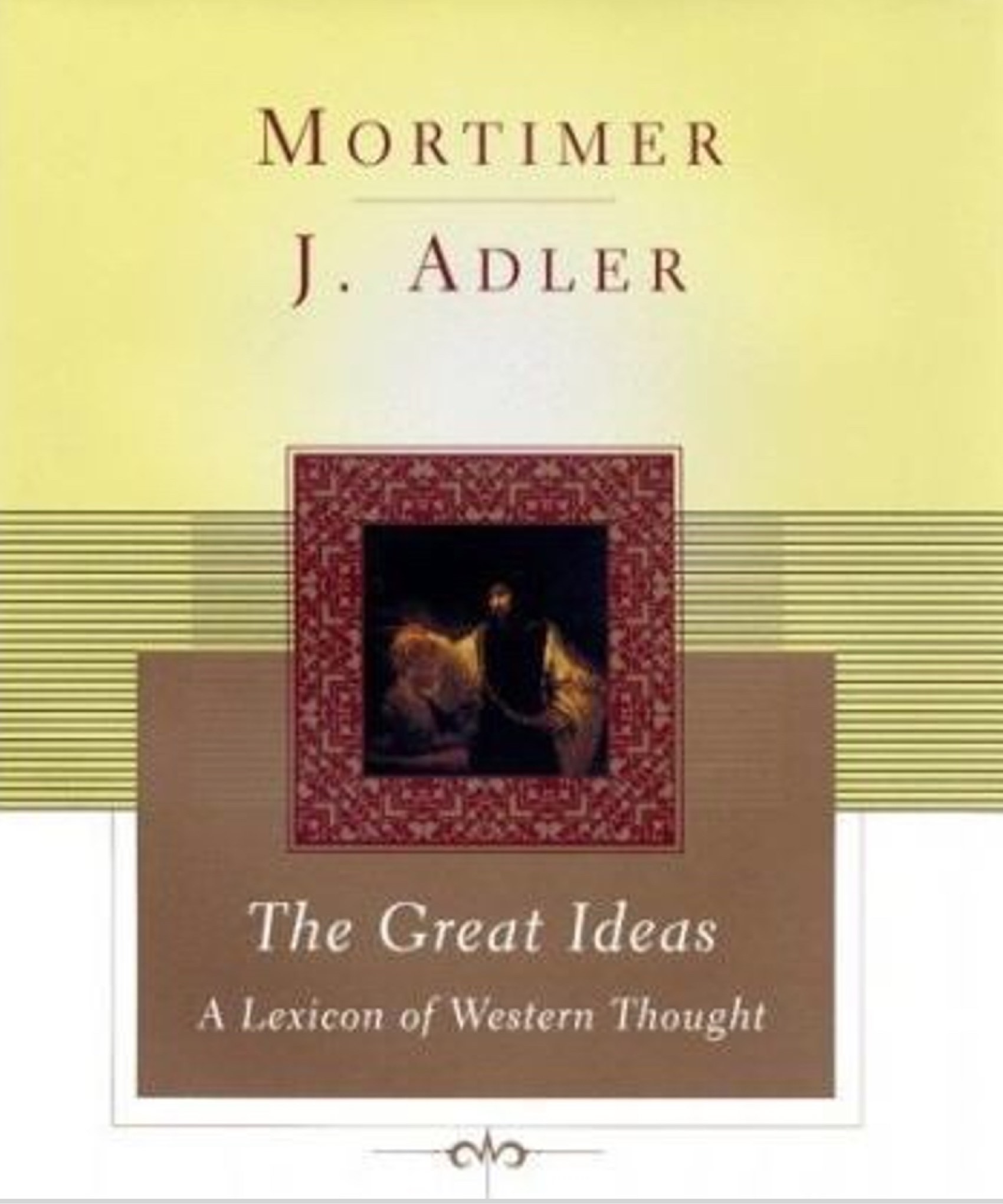THE GREAT IDEAS
Summary of The Great Ideas: A Lexicon of Western Thought by Mortimer J. Adler
Mortimer J. Adler’s The Great Ideas is a philosophical reference book that presents a structured exploration of the most influential concepts in Western thought. Originally derived from the Great Books of the Western World series, this work offers a thematic and analytical discussion of ideas that have shaped intellectual history for over 2,500 years.
Key Themes and Content
1. The Concept of “Great Ideas”
• The book identifies 102 fundamental ideas that are central to Western intellectual tradition.
• These ideas include truth, justice, democracy, virtue, liberty, government, and religion.
• Adler argues that these ideas remain timeless and relevant, engaging thinkers across generations in an ongoing “great conversation.”
2. The Structure of Western Thought
• Adler presents ideas in a systematic lexicon, organizing them alphabetically.
• Each concept is explored through historical references, philosophical arguments, and cross-disciplinary perspectives.
• The book highlights how ideas are debated and refined through dialogue among thinkers from Plato and Aristotle to Kant, Nietzsche, and modern scholars.
3. The Influence of the Great Books
• The work is based on the Syntopicon, an index of key themes found in classic texts from Homer to 20th-century authors.
• The book aims to connect different historical periods, showing how ideas evolve rather than become outdated.
4. Philosophy as a Dialogue
• Adler emphasizes that philosophy is not about finding definitive answers, but rather about engaging in meaningful discourse.
• The book provides quotations, interpretations, and critiques of ideas from major Western philosophers, encouraging readers to think critically.
5. Modern Misconceptions about Intellectual Progress
• Adler critiques the belief that modern thought is inherently superior to past ideas.
• He argues that while science and technology have advanced, philosophical and ethical questions remain fundamentally the same.
Conclusion
The Great Ideas serves as an essential guide to understanding the foundations of Western thought. It bridges historical and contemporary discussions, encouraging readers to engage with philosophy as an ongoing conversation rather than a closed system of beliefs. The book is ideal for scholars, students, and anyone interested in deepening their understanding of intellectual history.
